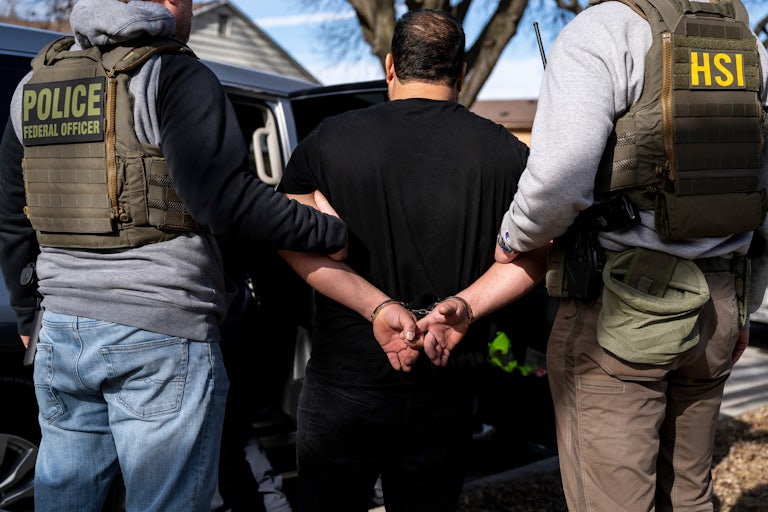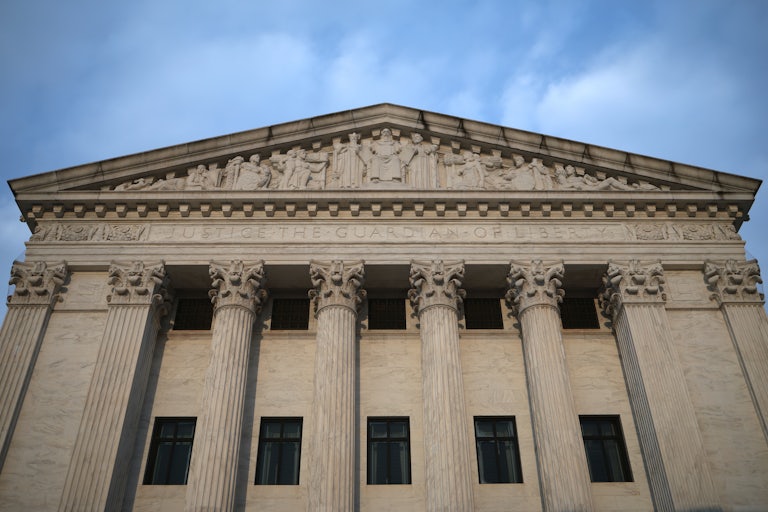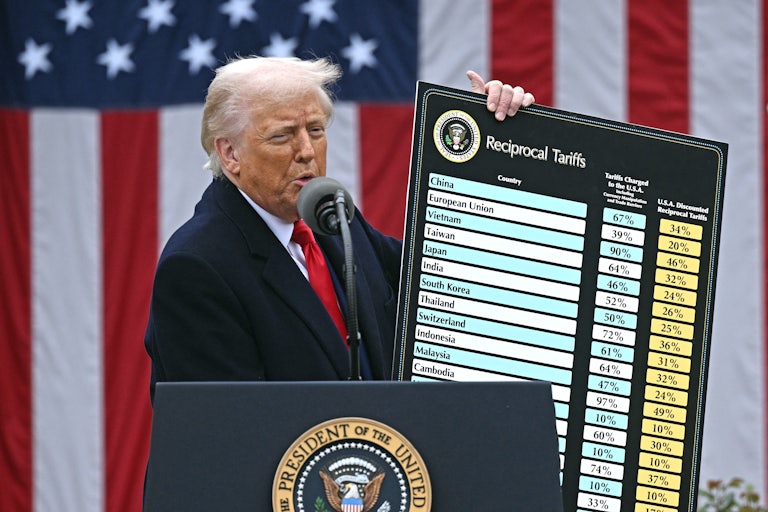Press Secretary Says Trump Wasn’t Joking About Deporting U.S. Citizens
Donald Trump had suggested sending American citizens to prison in El Salvador.

White House press secretary Karoline Leavitt waffled Tuesday when asked about Donald Trump’s threat to deport U.S. citizens to foreign prisons.
During a press briefing, Leavitt was asked to explain Trump’s disturbingly enthusiastic response to Salvadoran President Nayib Bukele’s wildly illegal proposition for the U.S. government to relocate individuals incarcerated in the federal prison system, including American citizens, to the Central American country.
The reporter wanted to know how the government could legally remove U.S. citizens, and how many would potentially be subject to removal. The short answer is: It can’t, so none. But Leavitt didn’t say that.
“So, the president has discussed this idea quite a few times publicly, he’s also discussed it privately,” she said, making sure to say that Trump had only discussed “potentially” deporting U.S. citizens.
“These would be heinous, violent criminals who have broken our nation’s laws repeatedly. These are violent, repeat offenders in American streets,” Leavitt said.
“The president has said if it’s legal, if there’s a legal pathway to do that, he’s not sure, we are not sure if there is, it’s an idea that he has simply floated and has discussed uh, very publicly, in the effort of transparency,” Leavitt said.
But Trump didn’t simply float the idea; it was offered by a foreign leader—who has already struck a $6 million deal to take alleged Venezuelan gang members that the Trump administration removed under the Alien Enemies Act.
Leavitt also took the opportunity to present her own alternative interpretation of the Supreme Court ruling Monday on removals under the AEA.
The court’s decision would allow the Trump administration to proceed with deportations under the AEA, but crucially, the ruling upheld the detainees’ right to due process, contrary to the Trump administration’s rampage against legal protections for people it wants to deport.
The justices said that detainees were entitled to receive notice of their removal within a reasonable time frame, and must be provided with an opportunity to challenge their removal. But when a reporter asked about it, Leavitt rejected the ruling.
“That’s not quite true,” Leavitt said. “They said that they are entitled to a habeas petition, and we are going to continue to comply with the law.”
The ruling said that detainees could be provided the opportunity to file habeas petitions in the U.S. Court of Appeals for the Fifth Circuit, a MAGA-aligned court in Texas where the deportation flights are staged. The petitions will likely have to be individually filed, rather than via class action, which could lead to a torrent of litigation for far-right judges to smack down.
Supreme Court Justice Sonia Sotomayor emphasized this crucial point in her dissent, writing that “the government cannot usher any detainees, including plaintiffs, onto planes in a shroud of secrecy, as it did on March 15, 2025,” and that it could not “immediately resume removing individuals without notice.”
“To the extent the Government removes even one individual without affording him notice and a meaningful opportunity to file and pursue habeas relief, it does so in direct contravention of an edict by the United States Supreme Court,” she wrote.








